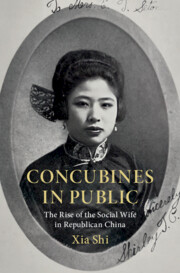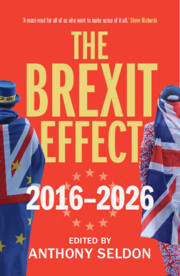Refine listing
Actions for selected content:
1299800 results in Books
Elizabeth Bishop's Styles of Writing
- Coming soon
-
- Expected online publication date:
- May 2026
- Print publication:
- 31 May 2026
-
- Book
- Export citation

Unanswered Questions in Psychiatry
- Coming soon
-
- Expected online publication date:
- May 2026
- Print publication:
- 31 May 2026
-
- Book
- Export citation

Concubines in Public
- The Rise of the Social Wife in Republican China
- Coming soon
-
- Expected online publication date:
- May 2026
- Print publication:
- 31 May 2026
-
- Book
- Export citation

The Brexit Effect, 2016–2026
- Coming soon
-
- Expected online publication date:
- May 2026
- Print publication:
- 18 June 2026
-
- Book
- Export citation

The Archaic and Early Classical Greek World
- Using Coins as Sources
- Coming soon
-
- Expected online publication date:
- May 2026
- Print publication:
- 31 May 2026
-
- Textbook
- Export citation

Questions for the Final FFICM Structured Oral Examination
- Coming soon
-
- Expected online publication date:
- May 2026
- Print publication:
- 31 May 2026
-
- Book
- Export citation

Elizabeth Bowen in Context
- Coming soon
-
- Expected online publication date:
- May 2026
- Print publication:
- 31 May 2026
-
- Book
- Export citation

British Black and Asian Poetry
- Race, Aesthetics and Politics 1970–2023
- Coming soon
-
- Expected online publication date:
- May 2026
- Print publication:
- 31 May 2026
-
- Book
- Export citation

The Cambridge Handbook for the Anthropology of Race and Ethnicity
- Coming soon
-
- Expected online publication date:
- May 2026
- Print publication:
- 31 May 2026
-
- Book
- Export citation
Ancient Greek Democracies
- Coming soon
-
- Expected online publication date:
- May 2026
- Print publication:
- 31 May 2026
-
- Book
- Export citation

A Concise History of the European Union
- Coming soon
-
- Expected online publication date:
- May 2026
- Print publication:
- 31 May 2026
-
- Book
- Export citation

The Fraying Bonds of Peace
- Economic Origins of the First World War
- Coming soon
-
- Expected online publication date:
- May 2026
- Print publication:
- 31 May 2026
-
- Book
- Export citation
The Emergence of Social Complexity
- A Global Archaeological Comparison
- Coming soon
-
- Expected online publication date:
- May 2026
- Print publication:
- 31 May 2026
-
- Book
- Export citation

Aurangzeb ‘Alamgir and the Mughal Empire
- A History Retold
- Coming soon
-
- Expected online publication date:
- May 2026
- Print publication:
- 31 May 2026
-
- Book
- Export citation

The Arthur Miller Tapes
- A Life In His Own Words
- Coming soon
-
- Expected online publication date:
- May 2026
- Print publication:
- 07 May 2026
-
- Book
- Export citation

Injurious Law
- Nuclear Exposure and the Harms of Redress
- Coming soon
-
- Expected online publication date:
- May 2026
- Print publication:
- 31 May 2026
-
- Book
- Export citation

The Big Picture as an Approach to the Study of International Relations
- Thinking With and Beyond Barry Buzan
- Coming soon
-
- Expected online publication date:
- May 2026
- Print publication:
- 31 May 2026
-
- Book
- Export citation

The Cambridge Handbook of English Corpus Linguistics
- Coming soon
-
- Expected online publication date:
- May 2026
- Print publication:
- 31 May 2026
-
- Book
- Export citation
Religion, Rebellion and Violence in Ireland, c. 1603-1649
- Coming soon
-
- Expected online publication date:
- May 2026
- Print publication:
- 31 May 2026
-
- Book
- Export citation
Living Precariously in the Roman World
- A Social Archaeology of Inequality
- Coming soon
-
- Expected online publication date:
- May 2026
- Print publication:
- 31 May 2026
-
- Book
- Export citation
